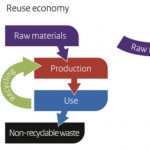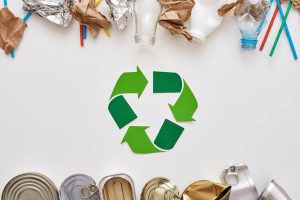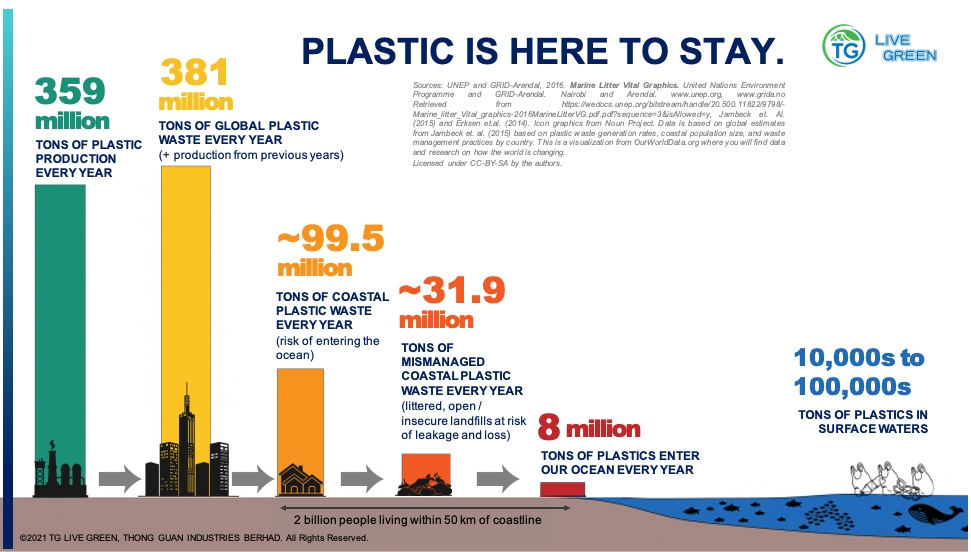
As Thong Guan progressively adopts the sustainability culture, we continue to engineer and innovate products with post-consumer recycled resins.
The post-consumer recycled (PCR) resin market is projected to reach USD 31,420 million by 2026 (from USD 30,070 million in 2020).
It is also expected to grow with a healthy growth rate of more than 0.7% from 2021 thru 2026.
With the growing trend of recycled resins market, we look into why PCR and explore the advantages and opportunities of using post-consumer recycled resins.
Defining PCR & PIR Plastic Resins
The ISCC Plus has clearly distinguished the differences between PCR and PIR resins.
Briefly, PCR plastic resins are
- Plastic materials generated by end-users products
- From end-users of households, commercial, industrial & institutional facilities
- Products that can no longer be of use for their intended purpose
- Also, materials return from the distribution chain
Why Post-Consumer Recycled Resins & the Climbing Growth Rate of PCR Resin Market
Every year, the global primary production of plastics amounts to a whopping 359 million tonnes.
The plastic waste itself, when improperly managed, is at risk of leakage to the environment every year—an estimated 8 million tonnes of plastics enter our ocean every year.

(Source: UNEP and GRID-Arendal, 2016)
The production of plastics is expected to continue rising steadily.
This means more plastic waste.
That is why it matters to us that we address sustainability as everyone’s responsibility—because it takes more than just one party to make the recycling and circular economy work.
Plastic is undeniably one of the greatest inventions of the last century. Without plastics, many inventions became almost impossible.
Therefore, plastic is not the problem.
Poor plastic waste management is the issue, as indicated in the statistics below.
A considerable percentage of our plastics still end up in landfills where
- 92% of the collected waste in the United States and
- 69% across Europe are diverted to landfills or waste incineration plants, and
- only 14% of the world’s plastics wastes are collected and recycled.
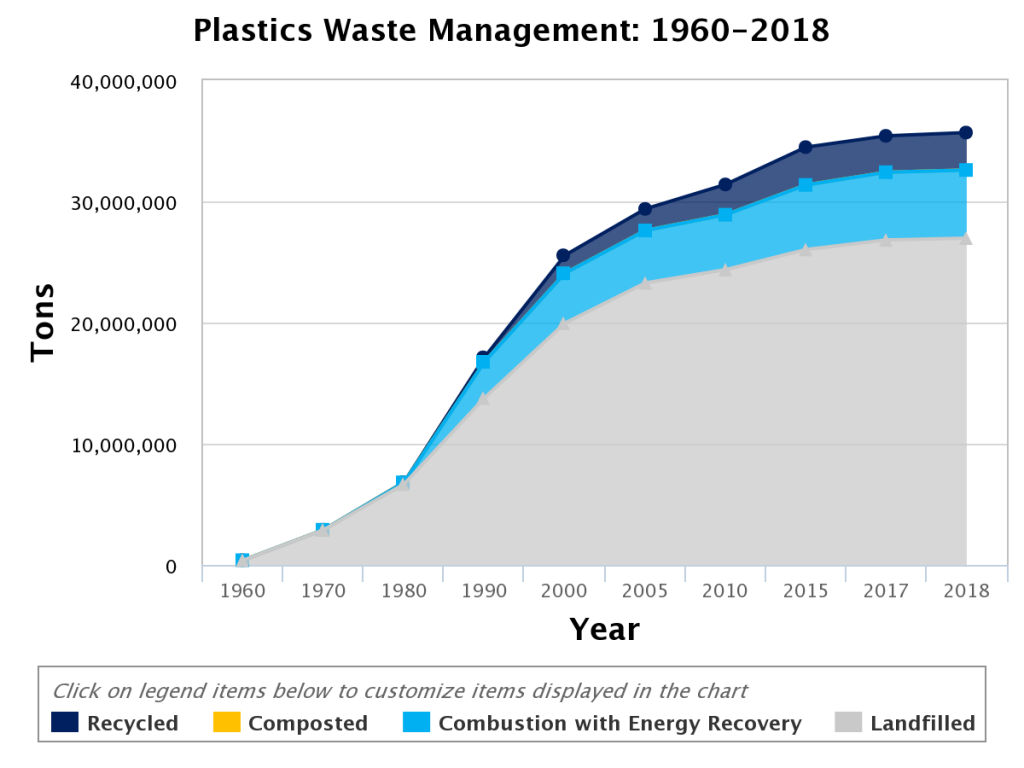
(Source: The United States Environmental Protection Agency)
As such, we see more stakeholders—policymakers, governments, manufacturers, companies, and institutions jumping on the PCR resins bandwagon.
Of course, there are other reasons like crude oil prices, Covid-19 global pandemic effects on global production and demand, supply chain and market disruptions, financial impacts, and more.
Though sustainability is not the only reason. But holistically, it impacts the overall business ecosystem and global economy.
However, we want to take the perspective from your company as our customer.
Here are four reasons why using post-consumer recycled resins in your new products will help your company.
Advantages of Post-Consumer Recycled Resins in Your Packaging Films
1. Lower your company’s carbon footprint, improve sustainability score, and enhance your ESG goals
Using post-consumer recycled resins can lower your company’s carbon footprint (greenhouse gas/carbon gas emissions) compared to virgin resins in your new products.
Contrary to general perceptions, using post-consumer recycled resins in your new products versus virgin materials
- is more cost-effective, and
- use more energy and emit more carbon.
According to the report published by the Association of Plastic Recyclers (APR), it concludes that using post-consumer recycled resins in your new product reduces greenhouse gas emissions compared to virgin material.
The study has taken into consideration the lifecycle impacts, which means
- fuels required to run collection trucks,
- resources needed at material separation facilities, and
- energy to process the materials into flakes and pellets.
Here’s the concluded table showing all 84 categories investigated.
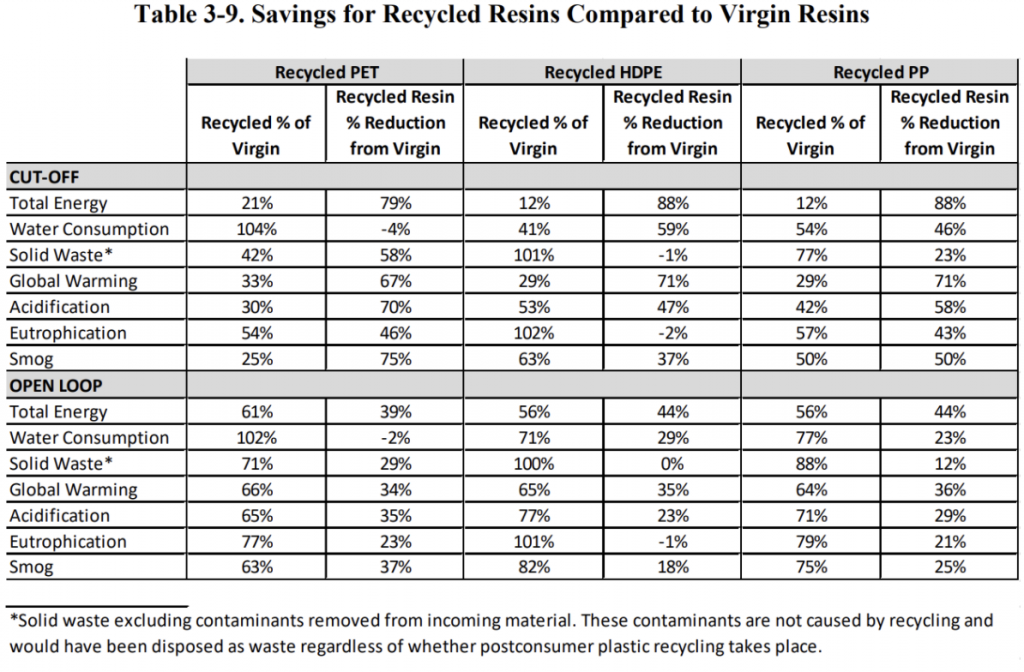
(source: https://plasticsrecycling.org/images/library/2018-APR-LCI-report.pdf)
Similarly, the recently published research by Oregon’s Department of Environmental Quality also highlighted that using recycled content has environmental benefits relative to virgin materials. (source: https://www.oregon.gov/deq/mm/production/Pages/Materials-Attributes.aspx)
2. Improve your ROIs and be less dependent on petrochemical market pricing volatility
The petrochemical market is volatile.
This means crude oil prices will continue to increase (as seen throughout most of 2018). As such, plastic resins price is subjected to surges constantly.
Fortunately, the cost of PCR resins is much more stable compared to virgin resins.
So, you don’t have to subject yourself to the volatility of the market.
Also, let us help you with ‘thin’ gage films that also reduces the amount of virgin resins required in your films.
Thus, improving your total costs and return on investment as well.
Furthermore, under the law of supply and demand, more PCR resins adoption means marginalising the PCR resins cost in the long run.
3. Enjoy the same, if not better, benefits as pure virgin materials films
At Thong Guan, we constantly preach about, “there is no such thing as wrong film, only inferior vs quality films.”
And achieving quality films means meeting the film requirements of our customers based on their needs—as we have detailed how we can achieve that in our #RecycledPlasticsSeries articles, comprehensively.
As such, we can proudly say you will still enjoy the benefits of all the functionalities of standard virgin-material films, while achieving your sustainability.
You may check out our latest NanoGreen high-quality machine film, or you can email us at info@thongguan.com to ask about our recycled garbage bags for your next purchase.
4. Be more regulatory friendly & exempt from taxes
Lastly, due to the demand for sustainability adoption, regulations favour recycled content packaging and products.
PCR resins are becoming increasingly regulatory friendly.
Therefore, with sustainable packaging on your inventory, you can meet environmental impact regulations post on your company by your local government.
Additionally, you can get the plastic tax exemption if you are shipping to the UK with plastics packaging that contain more than 30% recycled plastic.
This will take effect from 1 April 2022 onwards.
Conclusion
There are many more benefits of using post-consumer recycled resins packaging to add to the top four benefits we believe matter to your business.
For instance,
- better branding
- better customer relations in fulfilling consumers demand for sustainable products
- better margins with higher price points, again due to the demand
- long term sustainability for economic growth
All the more reasons why we should focus more on post-consumer recycled resins.
If you are ready to get on board. Talk to our sales representative by emailing us at info@thongguan.com.


